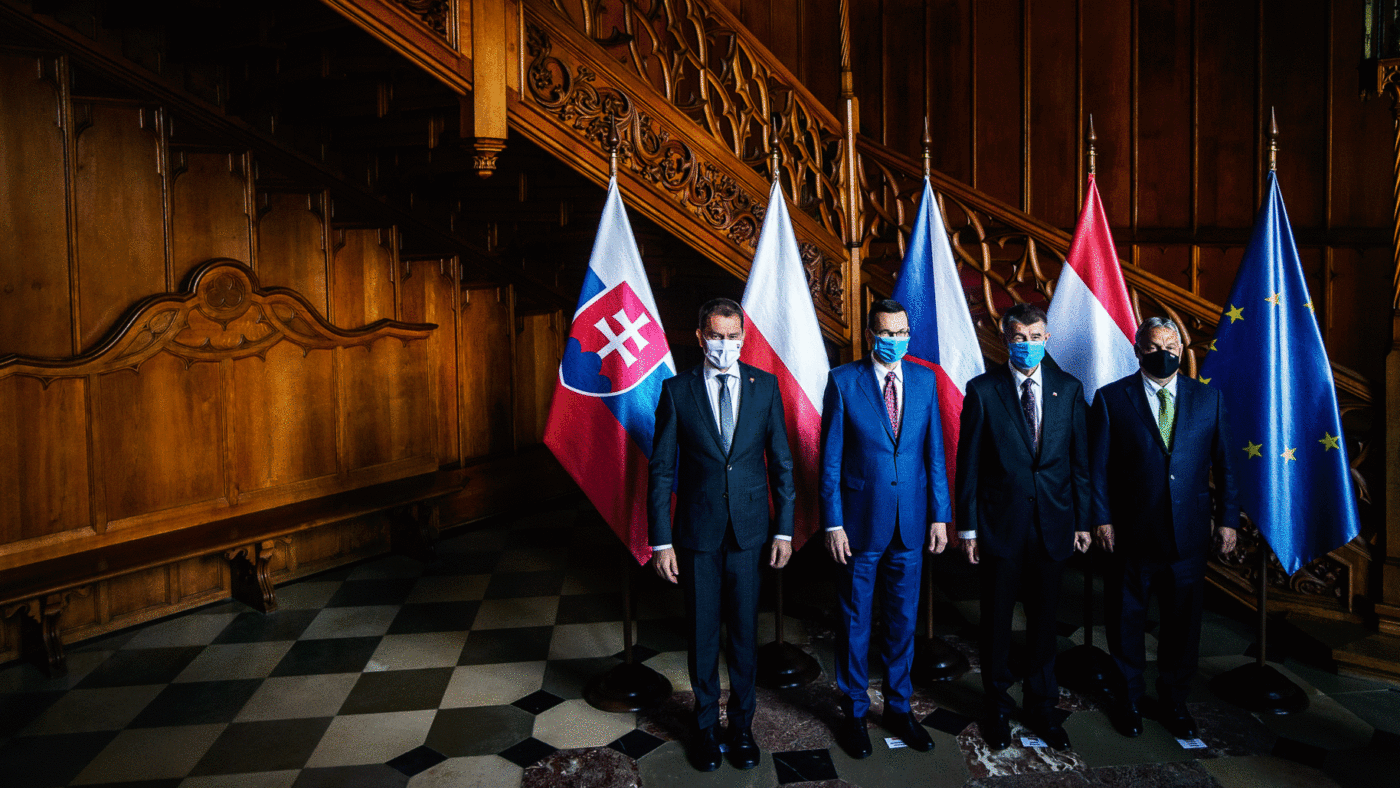Brexit has broken the EU’s equilibrium. Britain was seen as a vital counterweight to the calls for greater European integration by socially conservative countries like Hungary, Poland, the Czech Republic and Slovakia. With that individualist voice gone, the so-called ‘Visegrád Four’ have recognised the need to assert themselves – western Europe should be worried.
As the recent rule of Law dispute – which nearly derailed the new EU budget – showed, Poland and Hungary are increasingly determined to pursue domestic cultural agendas regardless of the EU’s institutional values. France and Germany may be fast assuming powerful roles as directors of EU economic, cultural and security policy, but that has spurred nations to the east of the bloc, which reject the EU’s liberal cultural goals, to band together and make sure their voice is heard in the new order.
The Visegrád Four are keenly aware of the dominance of the EU’s economic powerhouses, being particularly dependent on German industrial strength. This economic dependence offsets the growing Euroscepticism which has been in evidence in recent elections. It makes future EU exit scenarios unlikely – but frustration inevitable. And as Germany and France steer the EU, the V4 face a future in which their only hope of influencing the rest of the bloc may be by banding together.
That Emmanuel Macron and Angela Merkel were the only two heads of government invited to recent trade negotiations with Xi Jinping caused outrage among representatives of countries including Italy, Poland, Belgium, and Spain. Many are alarmed at the commanding role being played by those two integrationist nations – but it is a particular concern for smaller, poorer central and eastern European nations with different cultures and historical perspectives.
Retained national currencies and strong conservative societal currents make many in the V4 wary of increasing cultural and economic uniformity within the EU. Brexit is not just a blow to these countries because of the UK’s stance against European integration, btut because Britain was also a gateway to trans-Atlantic cooperation, as the EU’s strongest connection with the USA. The diminishment of the Anglosphere influence is a significant blow to the V4, which prioritise good relations with America as key to ensuring their national security against potential threats from the east.
Since Russia’s annexation of Crimea in 2014, expensive military reform programmes have been launched across central and eastern Europe, intended to provide Nato with a strong eastern wing and to foster good relations with the USA. When Donald Trump announced the withdrawal of US troops from Germany in summer 2020, Poland leapt at the chance to become America’s key ally in mainland Europe. The Enhanced Defence Cooperation Agreement signed in August paved the way for the relocation of American troops and military institutions from Germany to Poland.
Nevertheless, the antagonism between Trump and the EU’s guiding powers in western Europe put countries which feel dependent on the USA for their security in a tricky position. They may have been relieved at Joe Biden’s election victory, which seemed to promise closer cooperation between the EU and the USA. But Angela Merkel’s determination to close trade negotiations with China before the end of the German EU Presidency is thought to have irritated the incoming Biden administration, which had stressed the need for a joint approach to China’s growing power. This cavalier disregard for US cooperation will have caused anger throughout the bloc – but especially in countries where the proximity of Russia remains a national security concern.
Faced with the apparent determination of France and Germany to direct EU policy – at times in ways contrary to their own interests – it is no surprise that calls for Visegrád Four cooperation are growing. The Hungarian and Polish stance in the Rule of Law dispute was only viable through mutual support; Czech President Miloš Zeman joined the argument too, reaffirming his country’s strategic commitment to its V4 allies. The need for greater V4 cooperation has been a recurring theme amongst Czech political commentators since Brexit. And it is feared that coalitions between smaller states will soon be necessary for less powerful voices to be heard at all.
In his parting shot to Britain on New Years’ Eve, Emmanuel Macron described Brexit as driven by a “European malaise”. Yet the new French-German dominance – together with a shared devotion to European integration – is already feeding another malaise, this time to the east. The EU has lost its equilibrium, and unless a new balance can be found its recent quarrels are only a taste of what is to come.
Click here to subscribe to our daily briefing – the best pieces from CapX and across the web.
CapX depends on the generosity of its readers. If you value what we do, please consider making a donation.


